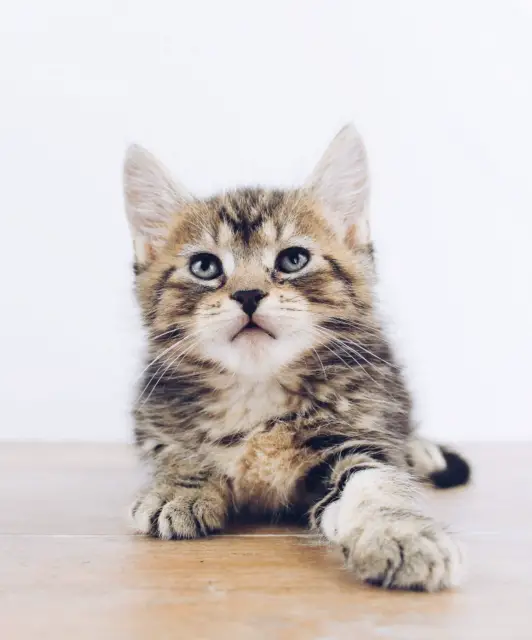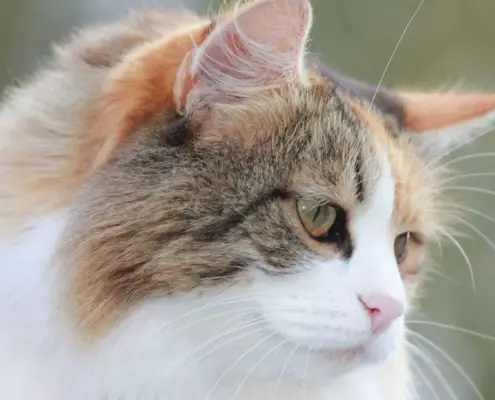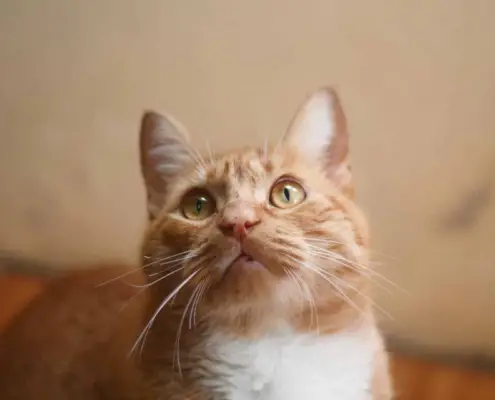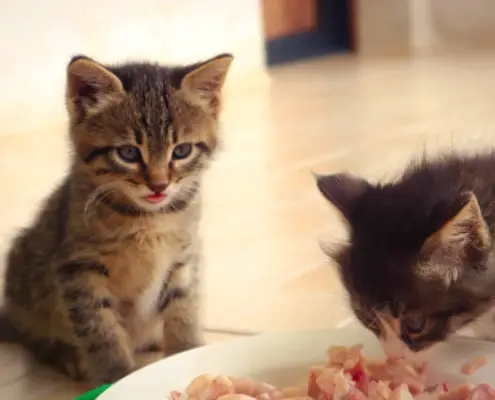
The feline heart is a remarkable organ that plays a crucial role in the overall health and well-being of a cat. Just like in humans, a cat’s heart is responsible for pumping oxygenated blood throughout the body, delivering vital nutrients and removing waste products. Understanding the anatomy and function of a cat’s heart is essential for every cat owner, as it can help detect and prevent potential heart problems. In this article, we will delve into the intricacies of a cat’s heart, common heart conditions in cats, signs and symptoms to watch out for, diagnostic methods, treatment options, preventive measures, and tips for caring for a cat with a heart condition.
Anatomy of a cat’s heart
A cat’s heart, although similar in basic structure to a human heart, has its own unique features. It is located in the thoracic cavity, between the lungs, and is protected by the rib cage. The heart consists of four chambers: two atria and two ventricles. The right side of the heart receives deoxygenated blood from the body and pumps it to the lungs for oxygenation, while the left side receives oxygenated blood from the lungs and pumps it to the rest of the body. The heart is surrounded by a protective sac called the pericardium and is supplied with oxygen and nutrients by the coronary arteries.
Function of a cat’s heart
The primary function of a cat’s heart is to pump blood throughout the body, ensuring that all organs receive the necessary oxygen and nutrients. The heart accomplishes this through a coordinated series of contractions known as the cardiac cycle. During each cycle, the heart contracts and relaxes, allowing blood to flow through the chambers and blood vessels. The heart rate, or the number of times the heart contracts per minute, varies depending on factors such as the cat’s age, size, and activity level. A healthy heart maintains a steady rhythm and efficiently circulates blood, supporting the overall health and vitality of the cat.
Common heart conditions in cats
Despite their robust nature, cats can be prone to certain heart conditions. One of the most common conditions is hypertrophic cardiomyopathy (HCM), which is characterized by the thickening of the heart muscles. HCM can lead to decreased heart function and potentially life-threatening complications. Another condition is dilated cardiomyopathy (DCM), where the chambers of the heart become enlarged and weakened, impairing its ability to pump blood effectively. Other heart conditions that can affect cats include heart murmurs, arrhythmias, and congenital heart defects. It is important for cat owners to be aware of these conditions and their potential impact on their feline companions.
Signs and symptoms of a heart problem in cats
Recognizing the signs and symptoms of a heart problem in cats is crucial for early detection and intervention. Some common indicators of a heart condition in cats include difficulty breathing, rapid or labored breathing, coughing, lethargy, loss of appetite, weight loss, and fainting. Cats with heart problems may also show signs of exercise intolerance, reluctance to play, or reduced grooming habits. It is important to note that these symptoms can be subtle and easily overlooked, so regular veterinary check-ups and attentive observation are essential for identifying potential heart issues in cats.
Diagnosis of heart conditions in cats
When a cat exhibits symptoms of a heart problem, a thorough veterinary examination is necessary to determine the underlying condition. The diagnostic process may involve various tests, including a physical examination, listening to the heart sounds with a stethoscope, X-rays to assess the heart’s size and shape, electrocardiograms to evaluate the electrical activity of the heart, and echocardiograms to visualize the structure and function of the heart. Blood tests may also be conducted to assess organ function and rule out other underlying causes of the symptoms. Accurate diagnosis is crucial for developing an appropriate treatment plan and improving the cat’s quality of life.
Treatment options for heart conditions in cats
The treatment options for heart conditions in cats depend on the specific condition and its severity. In some cases, medication may be prescribed to manage symptoms, improve heart function, or prevent complications. Medications commonly used in the treatment of feline heart conditions include diuretics, beta-blockers, ACE inhibitors, and antiarrhythmic drugs. In more severe cases, surgical interventions, such as pacemaker implantation or corrective heart surgery, may be necessary. Additionally, lifestyle modifications, such as dietary changes, weight management, and stress reduction, can also contribute to the overall management of a cat’s heart condition. It is important to work closely with a veterinarian to determine the most appropriate treatment approach for each individual cat.
Preventive measures for a healthy cat’s heart
While some heart conditions in cats are genetic or congenital, there are preventive measures that can be taken to promote a healthy heart in felines. Regular veterinary check-ups are essential for monitoring heart health and detecting any early signs of a problem. Maintaining a balanced and nutritious diet, appropriate for a cat’s age and health status, can also contribute to heart health. Regular exercise and weight management are important to prevent obesity, which can strain the heart. Finally, minimizing stress and providing a calm and enriched environment for cats can help reduce the risk of heart problems. By implementing these preventive measures, cat owners can help ensure the long-term well-being of their feline companions.
Tips for taking care of a cat with a heart condition
Caring for a cat with a diagnosed heart condition requires special attention and consideration. It is crucial to follow the treatment plan prescribed by the veterinarian, including administering medications as directed and scheduling regular follow-up appointments. Monitoring the cat’s breathing, appetite, and overall behavior on a daily basis can help identify any changes or worsening symptoms. Creating a stress-free environment for the cat, with a consistent routine and minimal exposure to potential stressors, is also important. Additionally, providing a balanced diet, appropriate for the cat’s specific needs, can support heart health. By being proactive and attentive, cat owners can effectively manage their feline companion’s heart condition and promote a good quality of life.
Conclusion
The heart is undoubtedly a vital organ in every living creature, including cats. Understanding the anatomy, function, and potential problems associated with a cat’s heart is essential for every cat owner. By recognizing the signs and symptoms of a heart condition, seeking timely veterinary care, and implementing preventive measures, cat owners can significantly improve the well-being and longevity of their feline companions. Remember, a healthy heart leads to a healthy and happy cat. So, take the necessary steps to ensure your beloved feline friend’s heart remains strong and vibrant throughout their lives.
Don’t wait, prioritize your cat’s heart health today and schedule a check-up with your veterinarian. Your feline companion will thank you for it
If you enjoyed my article, I would appreciate you sharing it with your network.

Sima Ndlebe
Sima writes for CatBuzz. He is interested in Cats, Health and Fitness, and Entrepreneurship.
Published: 30 October 2023
Related Articles
Disclaimer
The content found on CatBuzz.org is presented on an "as is" basis and is intended for general consumer information and education purposes only. Any utilization of this information is voluntary and solely at the user's own risk.
None of the articles or content should be regarded as, or used in place of, veterinary medical advice, diagnosis, or treatment. The information provided on the website is purely for educational and informational intentions and should not be considered a substitute for professional guidance from a veterinarian or other qualified expert. The articles are designed to inform consumers about veterinary healthcare and medical matters that may impact their cat's daily life. It should be noted that this website and its services do not constitute the practice of any form of veterinary medical advice, diagnosis, or treatment. CatBuzz.org explicitly disclaims any liability for any direct or indirect damages or losses that may arise from the use of or reliance on the information contained within the content.
Consumers must consult a veterinarian, veterinary specialist, or another qualified veterinary healthcare provider when seeking advice regarding their cat's health or medical conditions. It is important not to ignore, avoid, or postpone seeking medical advice from a veterinarian or other qualified veterinary healthcare provider solely based on information obtained from this website. If you believe that your cat may be experiencing a medical issue or condition, it is imperative to promptly contact a qualified veterinary healthcare professional.



